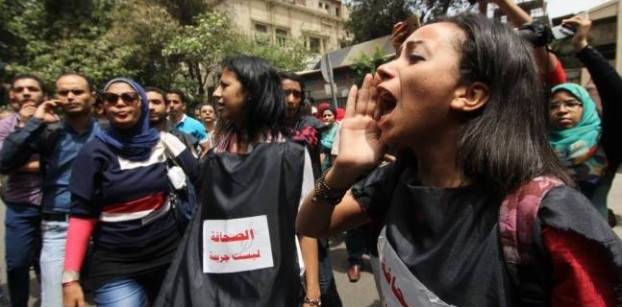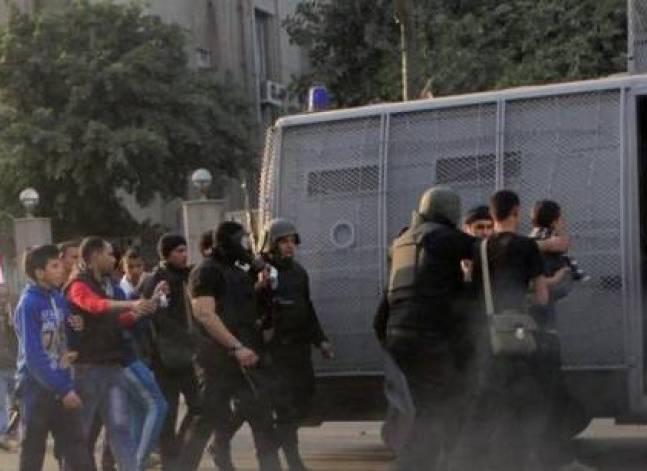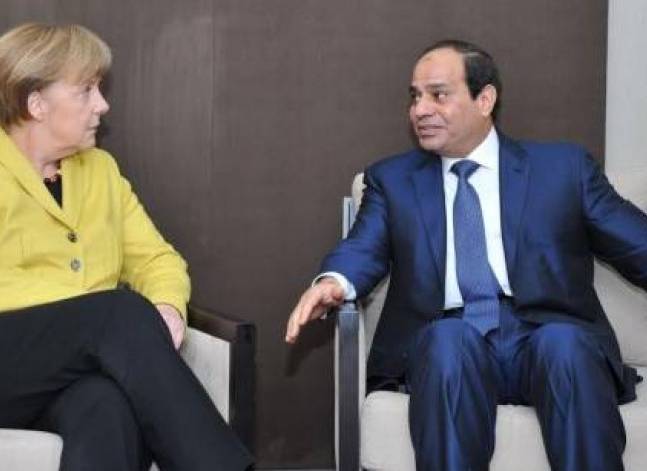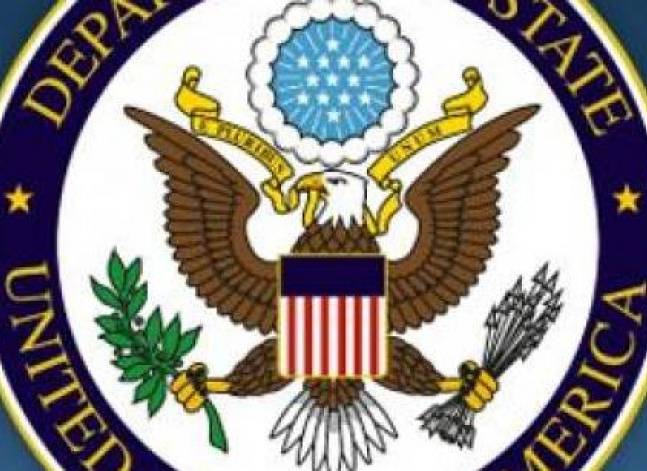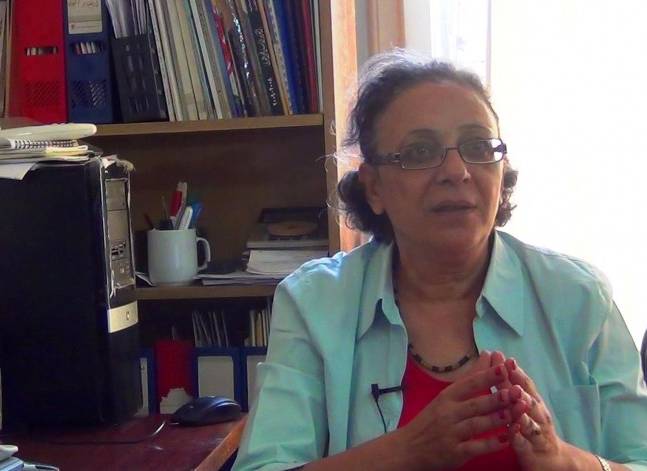Latest NEWS
- Aswat Masriya, the last word
- Roundup of Egypt's press headlines on March 15, 2017
- Roundup of Egypt's press headlines on March 14, 2017
- Former Egyptian President Hosni Mubarak to be released: lawyer
- Roundup of Egypt's press headlines on March 13, 2017
- Egypt's capital set to grow by half a million in 2017
- Egypt's wheat reserves to double with start of harvest -supply min
- Roundup of Egypt's press headlines on March 12, 2017
Amnesty, HRW lament Egypt's 'crackdown on dissent', call for serious measures
Journalists gather outside the Press Syndicate in downtown Cairo ahead of an emergency general assembly meeting on May 4, 2016, in protest to a police raid on the syndicate and the arrest of two journalists. ASWAT MASRIYA
CAIRO, May 25 (Aswat Masriya) – Between calling for an arms embargo and demanding the release of protesters, international rights organisations Amnesty International and Human Rights Watch lament Egypt's "crackdown on dissent".
Amnesty said on Wednesday that almost half of European Union member states have "flouted" a suspension on arms transfers to Egypt, calling on them to "immediately" impose an embargo on transfers of security and policing equipment.
In a report published on Wednesday, Amnesty stated that 12 out of 28 EU member states have remained among Egypt's main suppliers of arms and policing equipment. These include France, Germany, Italy, Spain and the UK.
The call to suspend arms, specifically the type that could be used to commit serious human rights violations, emerged after hundreds of protesters were killed in the forced dispersal of the Rabaa al-Adweya and Nahda sit-ins in August 2013. The sit-ins were held in support of the ousted Islamist president Mohamed Mursi following mass protests against his rule in June 2013.
Amnesty's records show that many EU states have largely ignored the 2013 call for a suspension of arms transfer.
Amnesty believes that by continuing to supply Egypt with arms, EU member states risk "complicity in a wave of unlawful killings, enforced disappearances and torture" amid what it described as a deteriorating human rights situation.
“Supplying arms that are likely to fuel such internal repression in Egypt is contrary to the Arms Trade Treaty, to which all EU states are party,” said Brian Wood, Head of Arms Control and Human Rights at Amnesty International.
Amnesty conducted research that reveals that EU states authorised 290 licenses for military equipment totaling more than $6.77 billion to Egypt in 2014 alone. The equipment included small arms, light weapons and ammunition; armoured vehicles; military helicopters; heavier weapons for use in counter-terrorism and military operations; and surveillance technology.
Meanwhile, the U.S. resumed its $1.3 billion annual military aid to Egypt in March 2015 following a temporary suspension made in response to the military ouster of Mursi. Egypt is the second largest recipient of U.S. aid after Israel.
Security expert Khalid Okasha told Aswat Masriya that European states have largely "overlooked" such calls, adding that many of those states have in fact made both security and military cooperation deals with Egypt.
Amnesty's statement further alluded to the Egyptian authorities "violent crackdown on dissent" in the form of the arrest of thousands of protesters, mass trials and "the use of arbitrary and excessive force."
Human Rights Watch also released a statement on Wednesday claiming that members of Egypt's judiciary have become an "integral part of the government's crackdown on dissent", citing the recent sentencing of more than 150 people to prison by Egyptian courts for demonstrating or publishing false information.
Prison terms given to protesters ranged from two to five years.
An Egyptian appeals court revoked on Tuesday five-year prison sentences handed down to 47 defendants. The defendants, however, are fined with EGP 100,000 each that they need to pay in order to be released.
The arrests came in the context of calls for protest on April 15 and April 25 against the handing over of Red Sea islands Tiran and Sanafir by Egypt's president Abdel Fattah al-Sisi to Saudi Arabia.
“Egyptian authorities are using national security threats to crush dissent among Egypt’s youth,” said Nadim Houry, deputy Middle East and North Africa director. “This is a policy of insecurity, not security, leaving young people unable find the smallest space for peaceful dissent that won’t land them in jail.”
President Sisi previously asserted the importance of striking a balance between national security considerations and rights and freedoms.
HRW advised Egyptian authorities to release detained activists and protesters and drop charges against them that violate freedom of peaceful assembly and speech.
"These statements are politicised, and have become redundant in their take on different issues; the world has largely come to overlook their reports," Okasha commented, "the reports are usually false and cut off from reality."
The human rights situation in Egypt has increasingly come under scrutiny amid a recent wave of arrests mandated by a controversial protest law in addition to the curtailment of public spaces, according to local rights groups.

